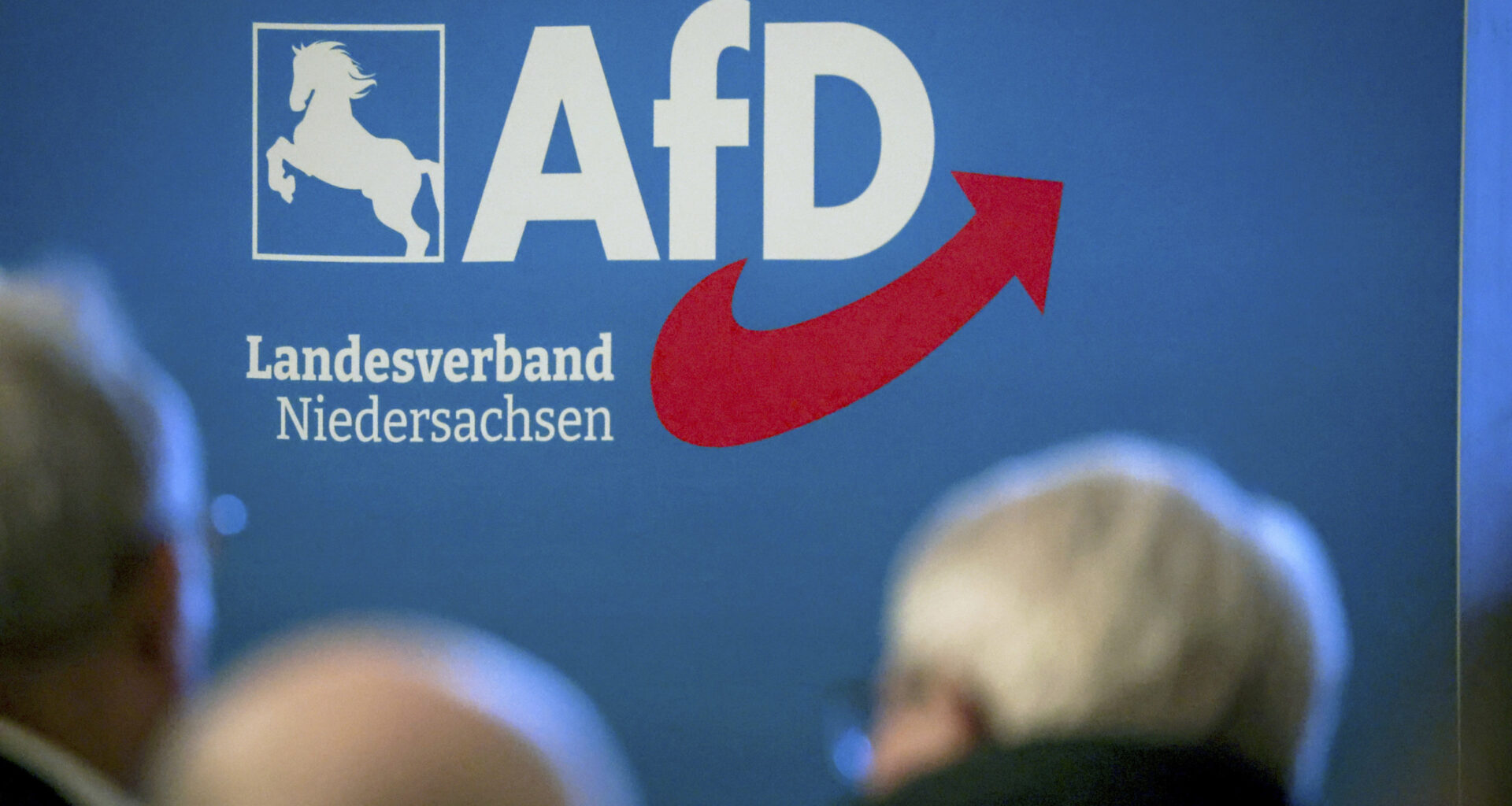Six candidates in Germany’s far-right Alternative for Germany (AfD) party died within two weeks of each other just before state-level local elections this month.
North Rhine-Westphalia municipalities have had to reprint ballots and, in some cases, require postal voters to cast new ballots for elections on September 14.
Four candidates running for local office in the northwest German state, local authorities reported last month. The deaths all took place within 13 days of each other, according to the European Conservative.
This week, AfD state deputy leader Kay Gottschalk said two reserve candidates also died, in an interview with Politico’s Berlin Playbook Podcast.
Investigations are ongoing, but police said there is no evidence of foul play, with most of the deaths involving pre-existing health conditions and natural causes, a North Rhine-Westphalia AfD spokesperson told Politico, according to the German daily newspaper Die Welt’s translation of the podcast episode.
Newsweek has contacted the AfD, North Rhine-Westphalia’s Interior Ministry and Germany’s Interior Ministry via email for comment.

File photo of delegates sitting in front of the party logo at the constituency meeting of the AfD Lower Saxony in December 2024.
File photo of delegates sitting in front of the party logo at the constituency meeting of the AfD Lower Saxony in December 2024.
AP
Why It Matters
The cluster of deaths prompted administrative disruption in affected districts and revived online speculation about their cause. Police and election authorities said there was no evidence of criminal activity.
The upcoming election will be a test of voters’ support for the AfD, which became Germany’s second-biggest party in February’s federal elections.
The AfD was classified as a right-wing extremist organization by Germany’s spy agency in May, but the description has been paused because of an appeal pending in court.
What To Know
Candidates Ralph Lange, 66, Wolfgang Klinger, 71, Stefan Berendes, 59, and Wolfgang Seitz, 59, are the first four who died within two weeks of each other.
The City of Rheinberg announced Seitz’s death on August 21, before the City of Schwerte said on August 26 that Klinger had died “unexpectedly” on August 19. The next day, the City of Blomberg announced “the unfortunate death” of Lange on August 27 and, on August 28, the City of Bad Lippspringe said Berendes “died unexpectedly.”
On Tuesday, Gottschalk named René Herford and Patrick Tietze as the reserve candidates who died.
Newsweek has contacted each of these local authorities to ask for more details on specific dates and causes of deaths.
Even though police have said that they do not suspect foul play, the deaths have fueled speculation online, including from professor Stefan Homburg, a retired Germany economist who was the director of the Institute of Public Finance at Leibniz University Hannover until 2021.
He was commenting on the initial four who died when he said in a post on X on August 29 that the cluster of deaths is “statistically almost impossible.”
AfD co-leader Alice Weidel reposted the message with the caption: “Four AfD candidates have died.”
But Gottschalk, the state’s AfD deputy leader, said there is no reason not to call the deaths a coincidence.
“What I have in front of me—but that’s just partial information—that doesn’t back up these suspicions at the moment,” he told Politico’s Berlin Playbook Podcast, adding that he wants investigations to take place “without immediately getting into conspiracy-theory territory,” according to Die Welt’s translation.
What People Are Saying
The City of Blomberg, in a press release about the death of Ralph Lange: “All affected voters will automatically receive the new postal ballots as soon as they are available.
“The city of Blomberg asks for your understanding of this extraordinary situation and is available to answer any questions at any time.”
The City of Bad Lippspringe, in a press release about Stefan Berendes, said he died unexpectedly: “The city administration will…print new ballots for the city council election, so that the entire municipal election can be held as planned on Sunday, September 14. For citizens who cast their votes in person at the polling station on that day, the sudden death will not change anything.”
The City of Schwerte, in a press release about the death of Wolfgang Klinger: “This means that all postal votes cast so far have had to be declared invalid. So far, around 200 people from the Schwerte-Mitte V district have already voted. They will all now receive new postal voting documents by mail, including those who voted directly at City Hall. The city administration is working hard on new postal voting documents, which will be sent out shortly.”
The City of Rheinberg, in a press release about the death of Wolfgang Seitz: “The new ballot papers will then be printed. All affected voters will automatically receive their postal voting documents as soon as they are available. If affected voters still have their postal voting documents at home, please ensure they use only the new ones, as otherwise their vote may be invalidated.”
What Happens Next
Election administrators have said they will continue to print and mail replacement ballots where required so that votes would be counted in time for the September 14 elections.
Local authorities said they will continue to investigate each death.
